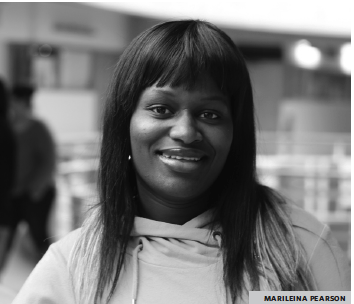
“You’re so nice.”
“You’re so well-mannered.” “Wow, you’re so friendly and funny.”
For years, I’ve heard these kinds of comments directed toward me without considering their implications.
When someone gives you a compliment, what is there to consider? But now I wonder, why exactly wouldn’t I be nice?
Was there something about my demeanor that says, “Warning! Stay away, armed and angry?”
I never considered what ideological roots these comments were based on until I came across the parody “Be Blacker,” a sketch from UCB Comedy about acting “blacker.”
In the parody, a young black girl is auditioning for a role when she is asked to act “black.” She starts off speaking normally but the director interrupts her and wants her to act “urban.”
So she performs her interpretation of “urban.” But she’s interrupted again, only to be asked to act “blacker.”
The girl, baffled, asks for clarification. The director explains that acting “blacker” entails combustion of attitude, sassiness, and speaking with one’s whole body, like Madea or Stella in How Stella Got Her Groove Back.
The awe and inquisitiveness of these comments started to make sense. I realized now that my behaviour went against the kinds of attitudes blacks were “supposed” to show.
Even among ourselves, we use terms like “whitewashed,” or not “black enough” without considering the social and psychological influences such terms might have.
So what is black attitude?
Black attitude is the way we examine and treat each other. It’s the way we feel about education, community, relationship, religion, and love. It’s about finding and positioning our identities in the constructed norm of black culture promulgated in the media.
It’s about being aware of the labels that we use to define ourselves and others.
When my cousin said I spoke so “white,” I corrected him and told him I speak like an educated Canadian. Black attitude is about being aware of the ideologies and stereotypes circulating throughout society and the media.
Why are other races allowed to be identified by their cultural, social, economic, and political upbringing, when we are reduced and categorized into one racial group?
The representation of black people in the media is scarce, and black-Canadians even scarcer. It is dominated by “ghetto” black Americans, as if all blacks are naturally born with a disrespectful, rebellious attitude.
This supplement tries to propose a redefinition of what black attitude is, especially in the way the media portrays us.
We know there’s a difference between Canadians and Americans, yet somehow this seems to apply only to white Canadians and Americans.
I hope this starts a dialogue within our community, where we can accept all kinds of attitudes that are based on individual personality instead of race, without any labelling.
In the end, I hope we may be entitled to our behaviour, as others are in society, so we are not called angry and aggressive when we act strong.



If you are paying any attention at all, Trump.is for Black people. Do your research and stop regurgitating the bad mouthing CNN and other anti Trump broadcasting stations